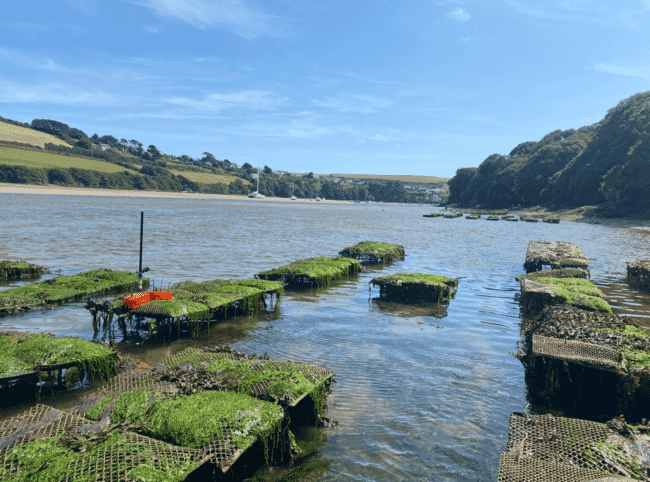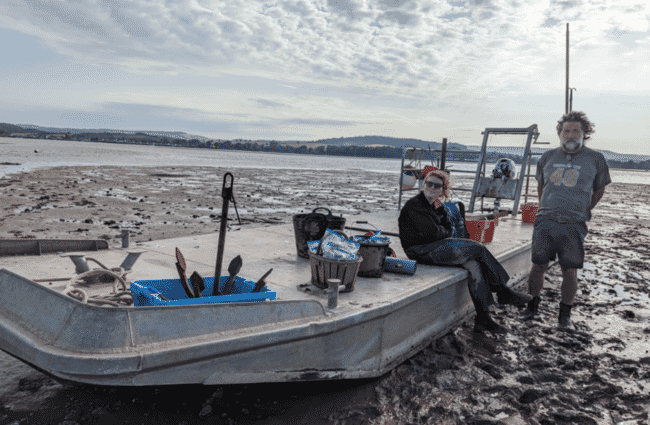
© Envision Marine
Called Ecosystem Benefits of UK Oyster Aquaculture Sites, the study* was carried out by experts from Envision Marine Ltd and University of Essex and has evaluated the diversity of marine life at oyster aquaculture sites in comparison to control areas with no oysters.
Their research, conducted in 2023, focused on three Pacific oyster farms and one naturalised Pacific oyster reef, as well as an historically significant native oyster farm that underwent commercial restocking efforts. Surveys included collection of underwater imagery, sediment samples, oyster dredging and ecosystem function testing.
Sediment analysis, biodiversity assessments, and ecosystem function testing revealed no significant adverse effects attributable to oyster farming activities. In fact, some locations exhibited higher seabed diversity compared to control areas, and oyster farms were seen to provide additional habitat structures that can support biodiversity in the marine environment. Observations of birds, fish, and marine mammals utilising oyster farms underscored the potential role in enhancing marine habitats and supporting diverse ecosystems.
In response to the study Andy Woolmer, an oyster farmer from Wales, stated: "We've always known that our oyster farms are a force for good in the marine environment. This study finally gives us the data to prove that we’re enhancing biodiversity and improving water quality around us for everyone’s benefit."
Tim Edwards, who farms in southwest England, added: “Our goal has always been to work in harmony with nature. Seeing birds, fish, and even marine mammals thrive around our farms is incredibly rewarding. It’s no surprise to us that the study shows that sustainable oyster farming is not just a livelihood for us, but a way to positively enhance the marine ecosystem in the estuary."

© Envision Marine
Ecosystem function testing highlighted the role of oyster farms in nitrogen cycling processes, which are essential for maintaining ecological balance in coastal environments. While evidence suggested increased ammonia inputs associated with oyster farms, microbial communities were responding to this, particularly on live oyster shells, facilitating the breakdown of nitrogen compounds.
Surveys conducted at historical native oyster farms yielded less demonstrable results, as the young native oysters used to restock the area were not sampled, and no consistent differences were found between the test and control areas. Some larger native oysters were recorded, which had been relaid 10 years previously as part of a native oyster restoration trial, emphasising the importance of ongoing restoration efforts to ensure the survival and development of native oyster populations.
Positive conclusions
In conclusion, the project highlighted that Pacific oyster farms have minimal impact on the marine environment, often exhibiting higher seabed diversity compared to surrounding shores. These farms not only provide habitat structures that enhance marine ecosystems but also support nitrogen cycling processes vital for coastal ecosystem health. The findings underscore the importance of ongoing conservation and restoration efforts to sustain native oyster populations and enhance coastal ecosystems. Amid regulatory uncertainties concerning invasive species, the study supports the industry’s call for balanced policy support, and for a nuanced regulatory framework that embraces oyster farming's sustainability benefits while addressing associated risks. By supporting such a framework, oyster farmers can help foster resilient coastal ecosystems and ensure a prosperous future for both communities and the environment.
*The study was supported by the Fisheries Industry Science Partnerships (FISP) scheme, with matched funding from the Fishmongers’ Company’s Fisheries Charitable Trust.




